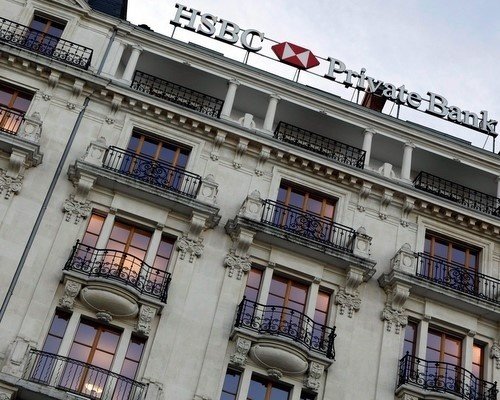Offices of the Geneva subsidiary of HSBC bank are being raided by Swiss police in an inquiry into alleged money-laundering.
Prosecutors said they were investigating HSBC Private Bank (Suisse) and “persons unknown for suspected aggravated money laundering”.
The investigation could be extended to people suspected of committing or participating in money laundering.
HSBC said it was “co-operating with the Swiss authorities.”
The police raid comes more than a week after allegations first emerged that HSBC’s Swiss private bank may have helped wealthy clients evade tax.
HSBC published a full-page advert in several weekend papers containing an apology over the claims.

The chief executive of HSBC’s Swiss private bank, Franco Morra, said last week it had shut down accounts from clients who “did not meet our high standards”.
Franco Morra added the revelations about “historical business practices” were a reminder that the old business model of Swiss private banking was no longer acceptable.
HM Revenue & Customs was given the leaked data in 2010 and has identified 1,100 people who had not paid their taxes.
Last week, HSBC admitted that it was “accountable for past control failures”, but said it had now “fundamentally changed”.
“We acknowledge that the compliance culture and standards of due diligence in HSBC’s Swiss private bank, as well as the industry in general, were significantly lower than they are today,” it added.
HSBC faces criminal investigations in the US, France, Belgium and Argentina, but not in the UK, where the bank is based.
The bank said it was “co-operating with relevant authorities”.
Offshore accounts are not illegal, but many people use them to hide cash from the tax authorities.
While tax avoidance is perfectly legal, deliberately hiding money to evade tax is not.
